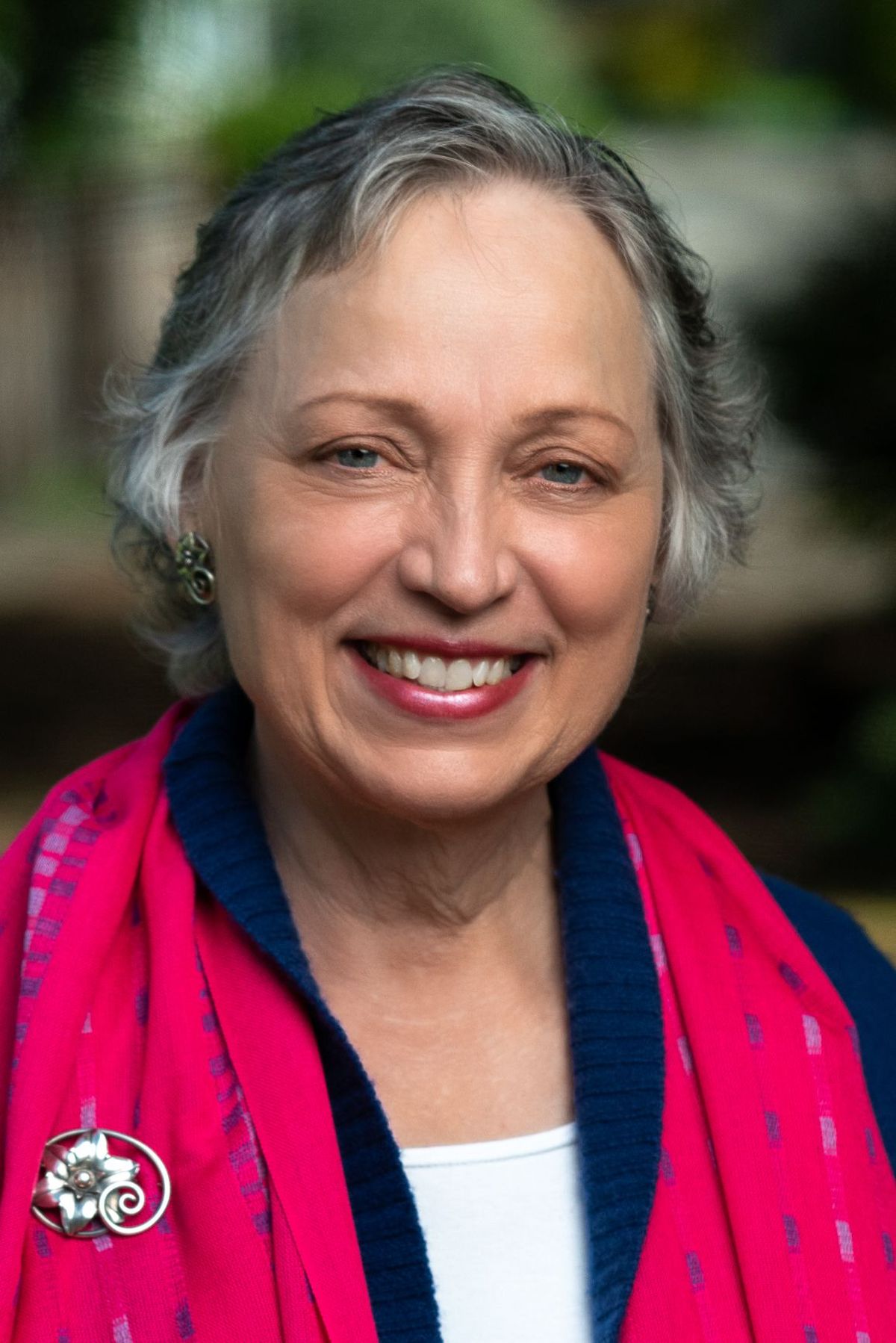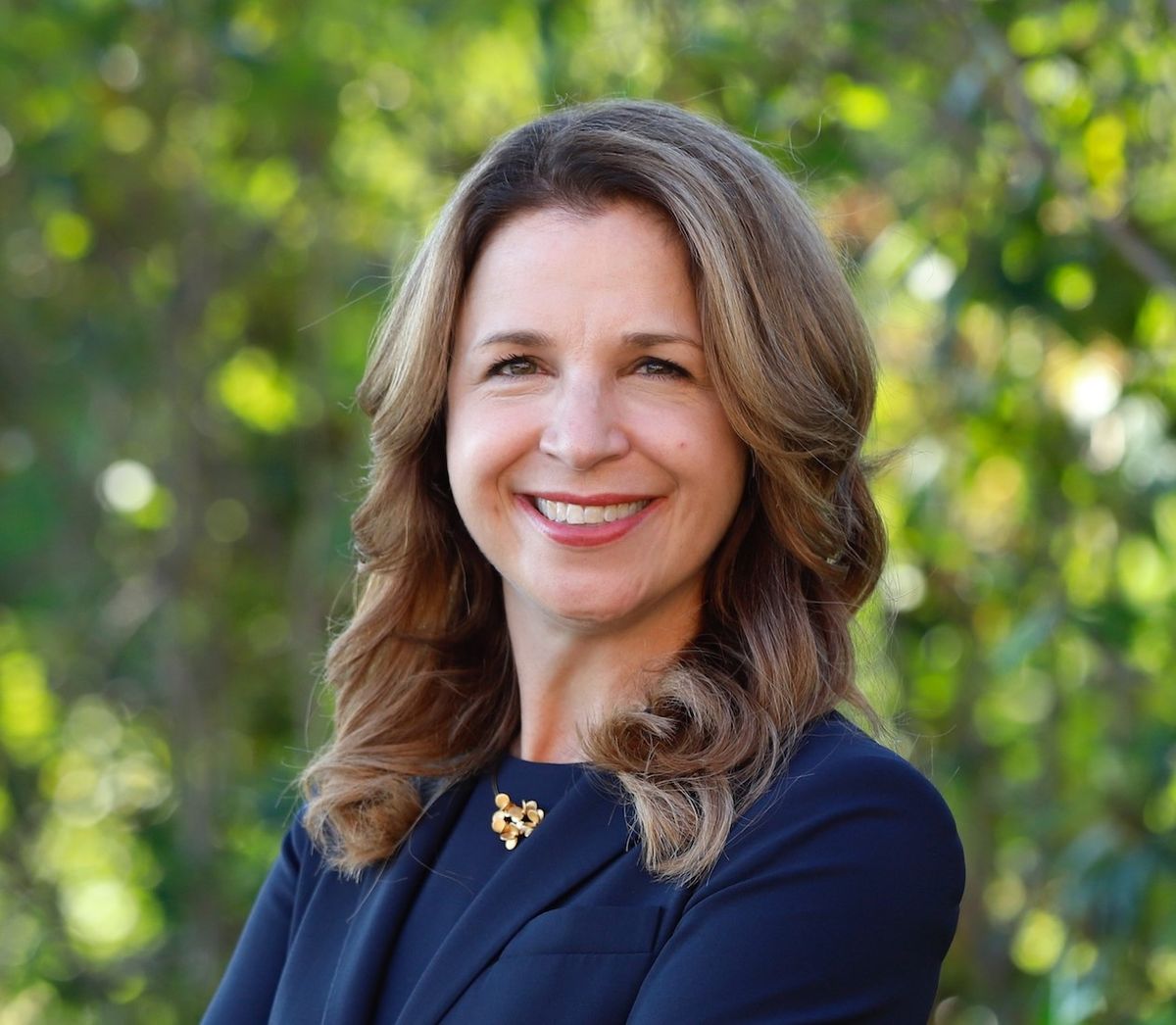Franz faces 5 challengers in commissioner of public lands primary
Republican Sue Kuehl Pederson is running for commissioner of public lands. (Courtesy of Sue Kuehl Pederson campaign)
Climate change, potential over-regulation and preventing wildfires are among the top issues debated by six candidates competing to be Washington’s commissioner of public lands.
Sue Kuehl Pederson and Steve Sharon, both Republicans, are hoping to take on incumbent Hilary Franz, a Democrat, in the Aug. 4 primary. Four other candidates – two Republicans, a Democrat and a Libertarian – are also on the ballot. Maryam Abasbarzy, Republican, said she ended her campaign in May. The other three did not respond to repeated attempts for comment.
The commissioner of public lands leads the state Department of Natural Resources, which is responsible for nearly 6 million acres of public lands across the state.
Kuehl Pederson is a natural resource biologist, with roles that include a fisheries biologist, an environmental analyst and a research scientist.
With her background in biology as well as the power industry, Kuehl Pederson said she felt the commissioner of public lands would be a perfect fit for her.
“I just want to apply my experience and my attention to ask questions, difficult questions, and seek the truth,” she said.
Growing up, Kuehl Pederson said pollution and environmental damage were common. Now, however, she feels people have gone too far to fight environmental damage, often overmanaging lands in an attempt to protect wildlife and land.
“That pendulum has swung so far to the other direction that we worry about every little thing, and we make laws that end up pretty much trampling people’s property rights or other rights of freedom,” she said.
Kuehl Pederson’s biggest concerns is forest management and its effect on wildfires. She said the current administration is not managing forests enough, which leads to overgrowth and can cause more fires.
She said her plan would include more logging to thin trees, which would decrease disease spread and make it easier to put out fires. More logging would also increase the amount of money going to schools and communities, she said.
“People have just gotten stuck in a way of thinking that’s not working anymore,” Kuehl Pederson said.
Kuehl Pederson said she thinks Franz is good at bringing together stakeholders and facilitating agreements among groups but that she does not have a grasp of the state’s natural resources.
“She’s a lawyer, and I’m a natural resource manager,” Kuehl Pederson said.
After Franz took office as commissioner of public lands, she focused on switching to a more proactive mode when it came to fighting fires in Washington. She developed a Forest Health Strategic Plan, which brought together agencies across the state to treat 1.2 million acres of forests during the next 20 years. The plan uses strategies such as prescribed burning and thinning to make forests healthy.
Franz said she has worked with the federal government and small forest landowners to allow the state to treat their lands as well.
“We’ve been very thoughtful about how we do this,” Franz said.
Franz said her biggest concern for the next four years is dealing with significant environmental issues the state faces due to a changing climate.
The first step is developing a plan, which is something Franz said she has done during her first term and hopes to further implement in a second term. She said her agency completed a climate risk assessment and developed a climate resiliency plan to look at specific effects of climate change in Washington and how the agency can help fight them.
Knowledge is the first step in fighting this crisis, she said.
“We are focused on the changes we’re seeing and how do we better manage in a more effective way based on the changes in climate conditions,” she said.
Along with environmental issues, Franz pointed to the economic challenges the state faces due to COVID-19. The Department of Natural Resources generates revenue, and Franz said she hopes to continue to find ways to make sure that money goes toward communities that need it the most.
Franz said she has worked in her first term with communities across the state, specifically rural communities, to address their environmental needs and ensure they are taking full financial advantage of their lands.
This could mean turning vineyards in the Tri-Cities into what Franz hopes is the next Napa Valley or finding a way to reduce water shortages in the Wenatchee area while also creating jobs. Projects like these, she said, not only bring in more money to the community but also add more jobs and resources for the state.
Kuehl Pederson said rural communities have become too regulated in some areas.
“It takes away people’s rights to be free, to have property and to use it the way they want,” she said.
Sharon said lands across the state are being exploited for profit.
“We’re using public lands mainly as a source of income,” he said. “It’s more important that they’re used to sustain life.”
Along with dismantling salmon hatcheries and implementing selective cutting of forests, Sharon’s biggest issues include the effects of 5G radiation and chemtrails on the state of Washington.
Sharon also ran for commissioner of public lands in 2012. Sharon said if elected, he would ensure state-funded studies into the effects of both 5G and chemtrails are conducted.
If necessary, Sharon said, he would take down 5G towers and sue the federal government to stop chemtrails.
“That’s two things I don’t think other candidates are really concerned about,” Sharon said.
A recent study from Oregon State University found 5G, the new wireless technology that provides faster internet and more bandwidth, has few health effects. Theories surrounding contrails, also known by some as chemtrails, include the idea that the trails from airplanes are chemicals that the government secretly sprays across the world. While contrails do affect the planet’s climate, no scientific research supports the theories that chemicals are sprayed.

